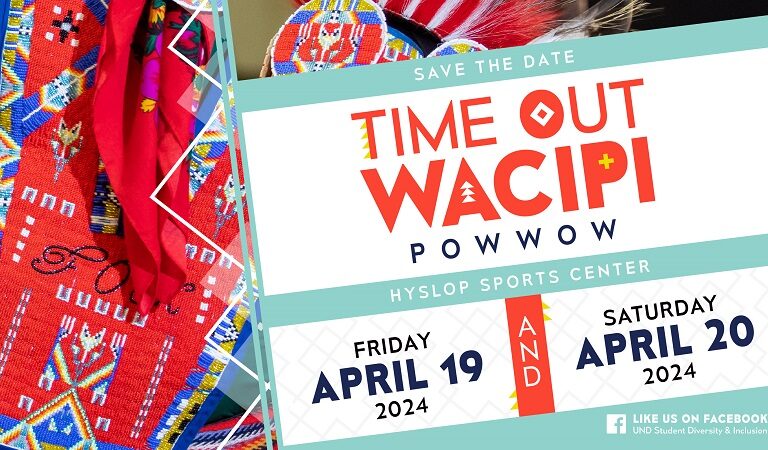LEADS: From classroom to career

Editor’s note: The following letter, written by Deans Amy Henley and Chris Nelson, precedes a special edition of UND Today focused on the “Learning” core value of the UND LEADS Strategic Plan. Head over to UND Today to read the full selection of stories reflecting the Learning objective of the plan.
By Amy Henley and Chris Nelson
Throughout their studies, graduate and undergraduate students often ask questions such as, “How do I take all of the things I learned in my classrooms and turn them into something employers want?” and “Employers want ‘experience;’ how do I address that?”
Complicating things further for students is the need to condense all of their learning and discovery into the limited space provided by a resume. How do students communicate to employers the promise and potential of their degree?
While these questions are common to most university students, the emphasis of UND LEADS on experiential learning — both inside and outside the classroom — provides students with a wealth of employer-ready answers. The trick is, first, knowing which experiences best serve as that bridge between academia and the workforce; then taking full advantage of those experiential learning opportunities when they arise; and then translating the value of such experiences into the language of skillsets.
Knowledge + workplace-ready skills
Degrees, whether undergraduate or graduate, provide a credential that serves as a marker of technical knowledge in a particular field or area of expertise. But of course, the speed of technological change these days means that technical knowledge in any field is continuously and rapidly updating and evolving.
As as result, while the technical, field-specific knowledge represented by a degree gets a student in the door, employers also need to know considerably more about a potential employee before they’ll invest in a hire.
What do employers want to know? If we reduce it down to essentials, employers want to know how a potential hire may respond to the different kinds of workplace experiences. Luckily for UND students, they have a wealth of relevant experiences to draw upon to demonstrate their workplace-ready skills.
Let’s consider: most employers want and need their employees to stay abreast of the latest advancements, trends and best practices in their respective markets. The need for currency of skills will require the ability to take in and adapt to new information, something that students do every day in their courses at UND, through reading, discussion and research.
Likewise, students are regularly presented with new and challenging information, both in and out of the classroom. How they respond to that challenge — in particular, by assimilating and adapting to the information in an individual or group assignment setting — helps show an employer what kind of learner they will be in the workplace.
How students take that information and apply it to solve problems will be crucial to their potential workplace success. Whether through a paper, an exam or a classroom debate, most coursework will ask students to observe and detect patterns in the information, theorize solutions and make decisions, balancing sometimes different or competing inputs.
As such, classroom experiences provide students ample examples to highlight their use of analytical skills to devise creative, innovative solutions to the problems posed by a particular assignment.
In essence, these experiences show employers how students think through problems.
The advantage of taking advantage (of opportunities)
As we move from learning and thinking into doing, the value and significance of the experiential opportunities provided at UND becomes increasingly clear. Work is a team sport; in many ways, so is higher education. Higher education, like the workplace, requires students to interact and communicate well with others. In the classroom setting, individual presentations highlight students’ ability to harness their communication skills, be persuasive and sell ideas. Group work provides students with a chance to use their communication and people skills to enhance collaboration by aligning individual goals with team goals, managing priorities while devising solutions and empowering people to bring their best.
Moving beyond the classroom, study at UND provides many and diverse ways for students to further build upon the skills developed in the classroom and put them to practical use through a range of opportunities. For example, UND students might take advantage of internships, student competitions or research experiences with faculty.
Recent Nistler College of Business and Public Administration MPA graduates Shaylee Miller and Sierra Johnson greatly value their graduate internship experiences, and note how those experiences served to “actualize” what they learned in the “ink-and-paper” assignments typical to a classroom.
For Miller, internships with CVIC and the University Park Neighborhood Corridor Project provided her with the combination of community and administrative experience that deepened her sense of what public administration means in practice within a local community. As she put it, the internship enabled her to “put my knowledge into action, to see where and how I fit” in that world, while also introducing her to the professional networks that then led to her current full time position as a Communication Strategist with Grand Forks Public Health.
Johnson also interned with the University Park Neighborhood Corridor Project — a collaboration between UND, the Community Foundation and the City of Grand Forks — and valued how translating her knowledge and skills learned in the classroom into practice highlighted for her the meaning of “responsibility” in public administration.
For Johnson, the experience of working closely with community members taught her how to think about “what your responsibilities are, what actions you can take, and how you make judgments” within a set of choices and priorities important to sometimes competing interests within a community.
In summary, learning at UND crucially encompasses that which is taught both inside and outside the classroom. In doing so, UND LEADS emphasizes a more complete student learning experience. The curricular components inside the classroom complement and enhance the experiential opportunities outside the classroom, holistically preparing the student for success post-graduation.


